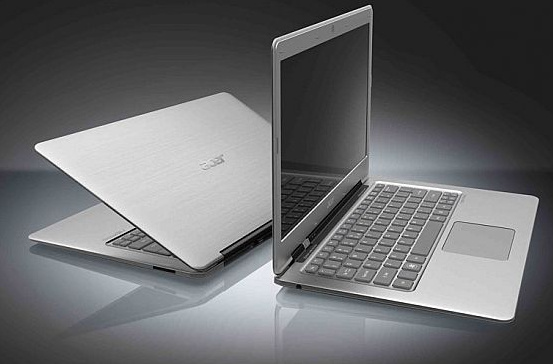Western Digital has really taken a hit lately, with the flooding in Thailand wreaking havoc on their HDD production. Working as fast as they can to regain their pre-flood levels of production, they still expect the supply and demand repercussions to last until at least September of this year.
The cost of recovery has come in at a staggering $119 million, which seems miniscule in comparison to their recent acquisition of Hitachi Global Storage Technologies for $4.3 billion. This of course is reflected in their recent earnings report.
During their latest conference call with financial analysts, they have weighed in on the Ultrabook market as very promising for them, and less so for the SSD market. Surprisingly John Coyne, the CEO of Western Digital, predicted less than 10% penetration of SSDs into the Ultrabook market.
“I expect ultrabooks to have traditional hard drives, hybrid hard drives and SSDs. We think that the SSD penetration profile will be in very low single digits in a mature ultrabook environment. We see an emerging position for hybrids a little early to develop a view on exactly what percentage of penetration, but we see hybrids as a very compelling alternative on the performance side to solid-state on bang for the buck. We anticipate that in large capacity environments, traditional hard drives will continue to be the compelling solution.” (John Coyne)
Many points that are made in his statement do carry some weight. With the Ultrabook specification not carrying a written requirement for an SSD as part of the device, there are some HDD-only Ultrabooks that are being introduced. This is somewhat distressing to those ‘in-the-know’, as SSDs are really the performance initiator that allows the snappiness of mobile devices to flourish.
PREDICTIONS
I personally believe that SSDs will make up a much larger portion of the Ultrabook market, as they are quite simply nearly a necessity for any new generation mobile device. For Intels’ vision of the Ultrabook to be an ‘Apple-killer’ to work, SSDs almost certainly need to be a huge part of the equation for success.
 One of the most common comments from tablet users is that their tablets are far faster than laptops or desktop computers. This can be attributed directly to the NAND that is being used for storage in the tablets, as opposed to the HDDs used in their counterparts.
One of the most common comments from tablet users is that their tablets are far faster than laptops or desktop computers. This can be attributed directly to the NAND that is being used for storage in the tablets, as opposed to the HDDs used in their counterparts.
With some Ultrabook models offering dual ports for storage, we will certainly be witnessing a host of caching solutions, such as those that have been cropping up utilizing Nvelo software. This would point more towards a sharing of the Ultrabook market amongst HDD and SSD vendors, and certainly not a “very low single digits” sales mix for the SSD drives.
Interestingly enough, the WD CEO also points to hybrid drives as being a contributor to the success of the Ultrabooks. WD is noticeably absent from the hybrid drive space, ceding that area to its competitors. This would lead one to question whether WD has a hybrid device in the works, with the obvious growth opportunity of that sector looming in the Ultrabook market.
WD Q2 FINANCIALS
Finally, Western Digital was hit by the Thailand flooding extensively, with their Q2 shipments coming in at 28.5 million drives, compared to 52.2 million for lat year. This is an unavoidable situation as WD recovers from the damaging floods. Earning also took quite the beating, with 145 million in profits, compared to 225 million last year.
As the HDD sector continues to emerge from the disastrous flooding in Thailand, we still haven’t seen any large spikes in SSD sales that were touted by many in the industry. It seems as if most users are simply attempting to wait out the current situation until HDD shipments stabilize.
With many storage market analysts and pundits predicting this to be the ‘year of SSD caching’ it will certainly be exciting to watch this market develop, and to see if WD and other developers will step up to the plate with their own integrated caching designs.
We are only 5 months into the supply disruptions, it will be interesting to see how things develop over the next 8 months!
 The SSD Review The Worlds Dedicated SSD Education and Review Resource |
The SSD Review The Worlds Dedicated SSD Education and Review Resource | 